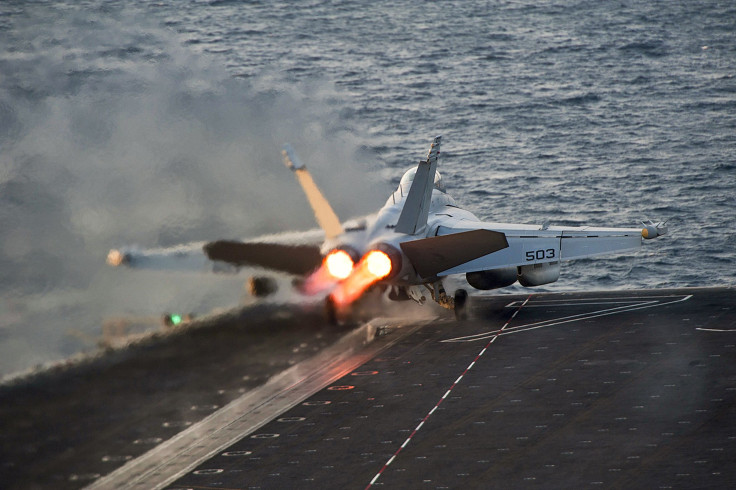ISIS Leader Killed In Iraq: Islamic State's Second In Command Died From US Airstrikes, White House Says

The Islamic State's second in command, Hajji Mutazz, was killed by an American military airstrike this week, according to the White House. The death of Mutazz, also known as Fadhil Ahmad al-Hayali, removes an important figure from the terror group's leadership structure. His influence ranged from finances for the so-called Islamic State, also known as ISIS or ISIL, to media coordination to coordinating the movement of weapons and explosives.
Mutazz's death is one in a series of deaths of ISIS leaders over the past several months. In July, a drone strike killed a senior ISIS leader in Syria. Mutazz was "instrumental in planning operations over the past two years, including the ISIL offensive in Mosul in June 2014," said U.S. National Security Council spokesperson Ned Price in a statement to reporters.
Statement by NSC Spokesperson Ned Price on the Death of ISIL Deputy Leader Fadhil Ahmad al-Hayali, aka Hajji Mutazz pic.twitter.com/jEhS6Da0G4
— Ram Ramgopal (@RamCNN) August 21, 2015He was traveling near Mosul, Iraq, Tuesday alongside another ISIS media coordinator, Abu Abdullah, when the U.S. military airstrike hit him. His "death will adversely impact ISIL's operations given that his influence spanned ISIL's finance, media, operations, and logistics," a White House press release read. "He supported ISIL operations in both [Iraq and Syria] and was in charge of ISIL operations in Iraq."
This isn't the first time Mutazz's death has been reported. At the end of 2014, several news organizations reported that U.S. officials had told them the terror leader had been killed. That information seems to have been based on inaccurate identification, a U.S. official told CNN. Not a lot is known about the strike that killed Mutazz because the information is considered to be sensitive. One official told CNN that the strike was based upon what is known as "actionable intelligence," meaning the strike was carried out with the knowledge that the target would be in a particular place at a particular time.
© Copyright IBTimes 2024. All rights reserved.












